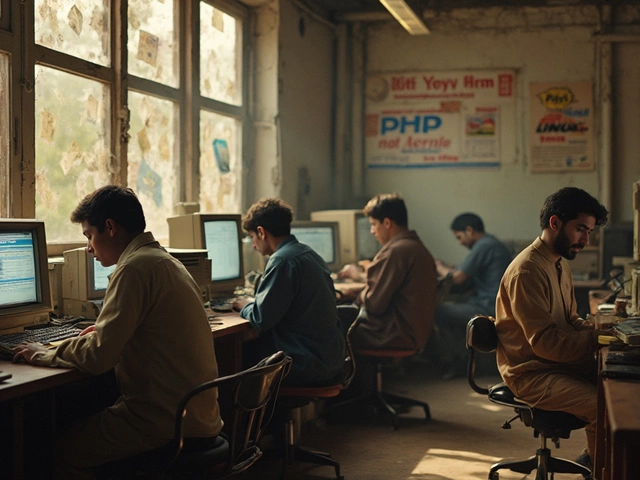Web Hosting Necessity: Why Every Site Needs Reliable Hosting
If you’ve ever tried to open a website that keeps loading forever, you know how frustrating it can be. The problem isn’t the design or the content – it’s the host. A good host makes sure your pages load fast, stay online, and stay safe. Below you’ll find the basics you need to pick the right host and keep your site running smoothly.
What Does a Web Host Actually Do?
A web host provides the server space where your files live. Think of it as renting a storage unit for your website. When a visitor types your URL, the host’s server sends the files to the visitor’s browser. If the server is slow or crashes, your site disappears, no matter how great your code is.
Most hosts also offer tools for backups, security scans, and easy domain connection. For example, if you’re a freelance web developer (like the audience of our "Freelance Web Developer Hourly Rate Guide 2025" post), you’ll need a host that lets you spin up demo sites quickly and lets clients see them without delay.
Key Reasons You Can’t Skip a Good Host
1. Uptime matters. Uptime is the time your site stays online. Aim for 99.9% or higher – that’s less than an hour of downtime per year. Every minute your site is down can cost you visitors, leads, or sales.
2. Speed affects users and SEO. Google ranks faster sites higher. A host with fast SSD storage and a nearby data center cuts load time. If you’re using a website builder (see our "Best Website Builder for SEO in 2025" post), the host still plays a big role in speed.
3. Security protects your reputation. Basic security features like SSL certificates, firewall, and malware scanning keep hackers away. Without them, a breach can wipe out months of work and trust.
4. Scalability grows with you. As traffic spikes – maybe after a new blog post or a marketing campaign – you’ll need more resources. Choose a host that lets you upgrade CPU, RAM, or bandwidth without moving to a new provider.
5. Support solves problems fast. When something goes wrong, 24/7 live chat or phone support can be a lifesaver. Imagine a client wants a site live by tomorrow; a responsive host can make that happen.
In practice, many beginners look for the cheapest plan, but cheap often means limited resources and slower response times. It’s better to invest a little more for a plan that guarantees uptime, speed, and security.
For those who just need a domain name (check out our "Can You Get a Domain Name Free Forever?" post), some hosts bundle a free domain for the first year. That saves you the hassle of buying it separately and keeps everything in one dashboard.
If you’re only learning HTML and CSS (see "How Long Does It Take to Fully Learn HTML, CSS, and JavaScript?"), a shared hosting plan is fine. But as you add JavaScript frameworks or a backend, consider a VPS or cloud host for more power.
Finally, remember that hosting is a long‑term partnership. Read the fine print for renewal prices, backup policies, and bandwidth limits. A transparent host will keep you informed and avoid surprise fees.
Bottom line: a reliable web host is the foundation of any successful website. It keeps your site online, fast, secure, and ready to grow. Choose wisely, and you’ll spend more time creating content and less time fixing crashes.

Many wonder if hosting is a necessity for their digital presence. This article explores the importance of web hosting, discussing its role in website functionality, performance, and security. It delves into various hosting options and their benefits, helping readers determine whether hosting truly meets their needs. Understanding these aspects can guide individuals and businesses in making informed decisions about their online platforms.
Continue Reading





